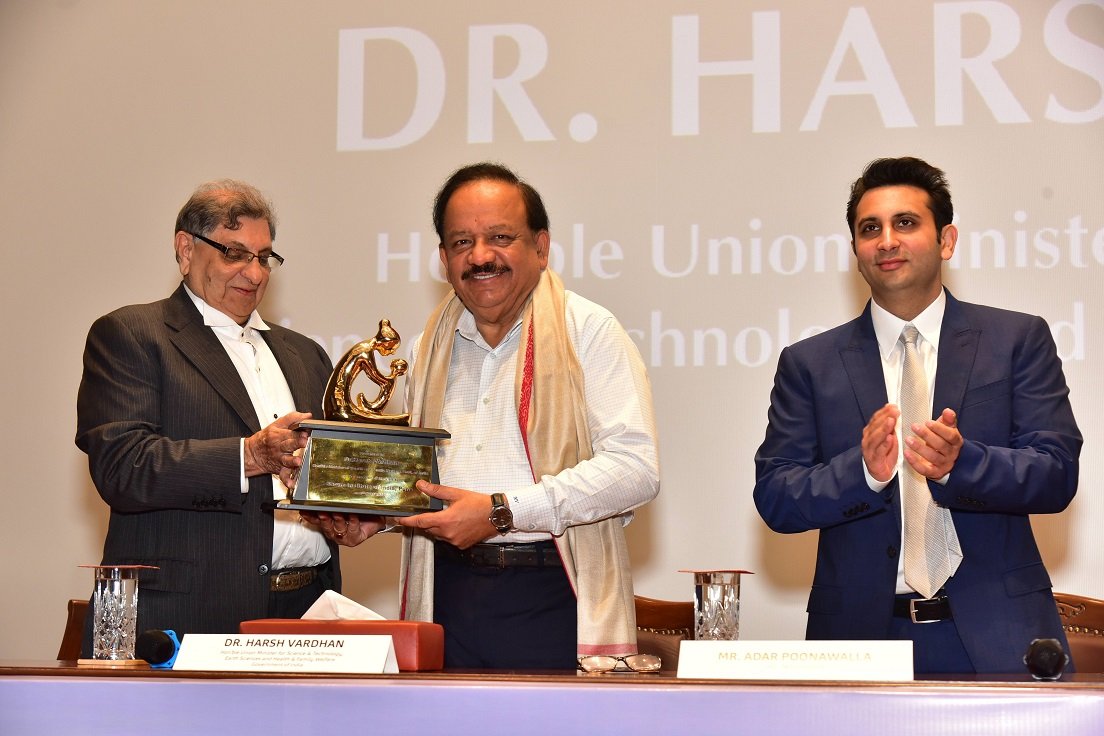Serum Institute invests Rs 3000 Cr in new vaccines facility
September 10, 2019 | Tuesday | News
Dr Harsh Vardhan inaugurates world’s largest vaccine manufacturing facility by Serum Institute of India
Serum Institute of India (SII), the world's largest vaccine manufacturer by number of doses produced and sold globally; has inaugurated it’s new multifunctional production facility for vaccines in the presence of Union Health Minister Dr. Harsh Vardhan along with Adar Poonawalla, CEO of SII and President of IVMA, in Pune. With an investment of over Rs 3000 crores so far, the plant operates with state-of-the-art equipment and facilities for an enhanced production quantity.
Spread across 2 million square feet, the expansive new facility will cater to 150 countries across the European and American continents, increasing SII’s market share to 10-15% internationally. The new facility, with a production capacity of half a billion doses manufactured annually, will also help in creating 3000 jobs in the next 5 years.
The manufacturing plant will commence its production from November 2019 and aims to provide additional capacity as well as improved flexibility in production. Focused on the American and European continents, the expansive unit is equipped with a wide array of state-of-the-art equipment, in compliance with the regions’ respective vaccine manufacturing regulations.
The new plant will maximize the production of vaccines such as HPV and TDAP in addition to Thermostable Rotasiil along with monoclonal antibodies like Trastuzumab (Herceptin) and Ustekinumab (Stelara®). Each of the vaccines will help protect and provide a healthy life to recipients.
Commenting on the inauguration, Adar Poonawalla, CEO of SII, said, “Better healthcare and immunization cover for children across the world is a cause that is very close to my heart, and the new plant, with enhanced production capacity, is a step towards the same direction. Both in the Indian and international markets, SII aims to provide necessary vaccine cover with ease of access and at affordable prices. As an organization, our goal is to effectively utilize our resources to provide the best preventive healthcare solutions to the global population.”
Dr. Harsh Vardhan, Honourable Minister for Health and Family Welfare, Science & Technology; and Earth Sciences, said, “It is our prerogative to ensure that the Indian population has a healthy life, and for that vision, we have worked on several campaigns. Initiatives like Serum Institute of India’s new plant at Manjri will help us ensure that we have the ease of access and availability to fulfil the needs of the Indian people.”
Recently, Serum of Institute of India (SII), in association with NIH (USA), developed a thermostable rotavirus vaccine. Touted as a revolutionary development, the vaccine remains stable and has the highest level of potency for a longer duration in non-regulated temperatures. The vaccine, called Rotasiil, remains stable for up to 30 months at a temperature of 25°C.
Recognized as India's No. 1 biotechnology company, SII has also been instrumental in leading a pan-India, immunization campaign – Swasth Immunised India. The campaign takes forward the cause of spreading awareness regarding the importance of immunization, and aims to drive the country towards a healthy and an immunized future. The initiative aims to spread awareness as well as encourage the masses to accept and administer necessary vaccinations to prevent fatal diseases among children and expectant mothers.
Driving the importance of full immunization coverage, Poonawalla as the president of IVMA has constantly strived to address and resolve the redundant processes, lack of infrastructure and other major challenges that are stalling India from becoming a fully-immunized nation. The association efficiently works towards bringing meaningful reforms in the country and enable a smoother functioning ecosystem by working closely with the relevant stakeholders and Government bodies. The key areas that the association will look into in addition to rectifying infrastructure are lack of adequate storage facilities for the vaccines and proper modes of transportation, among other issues.










